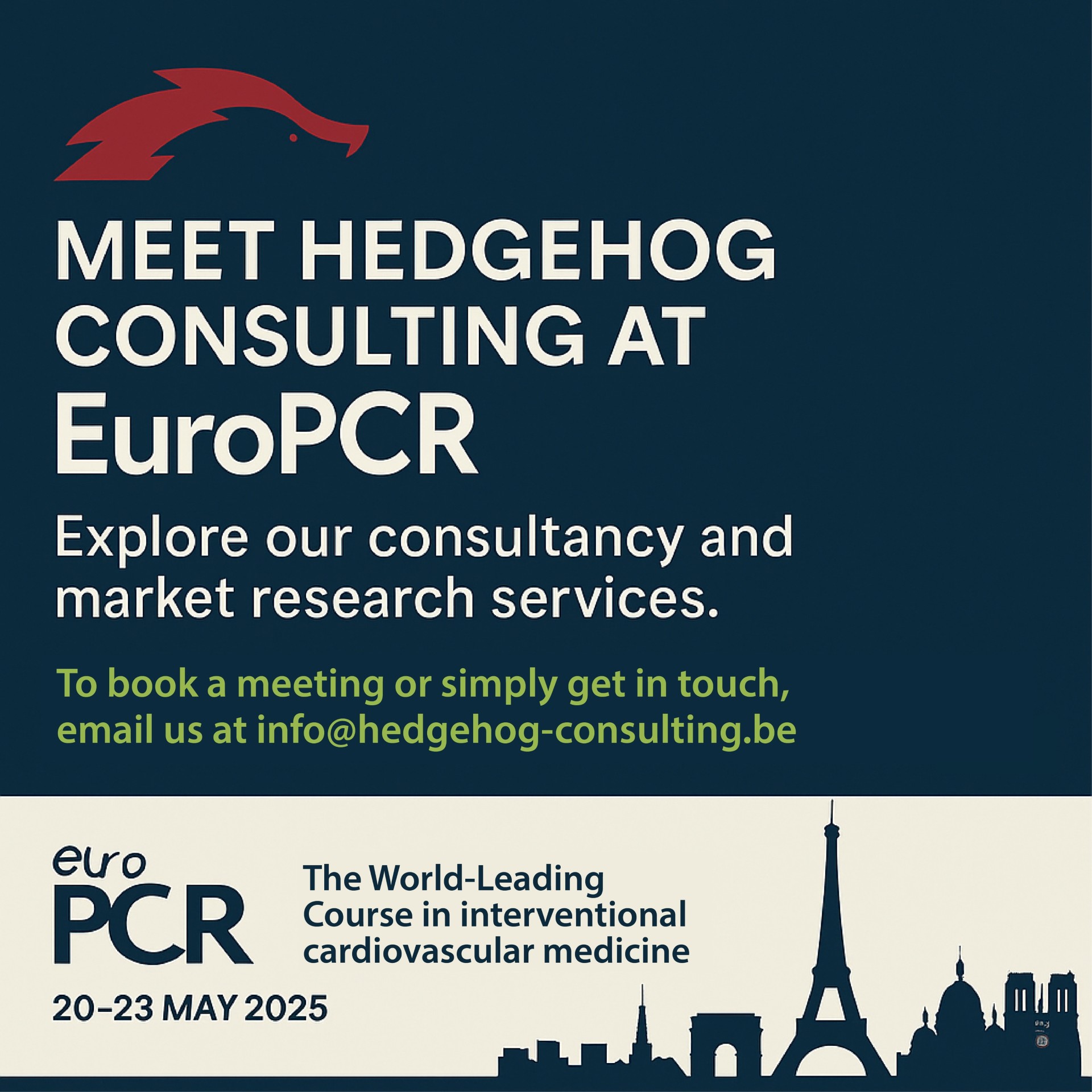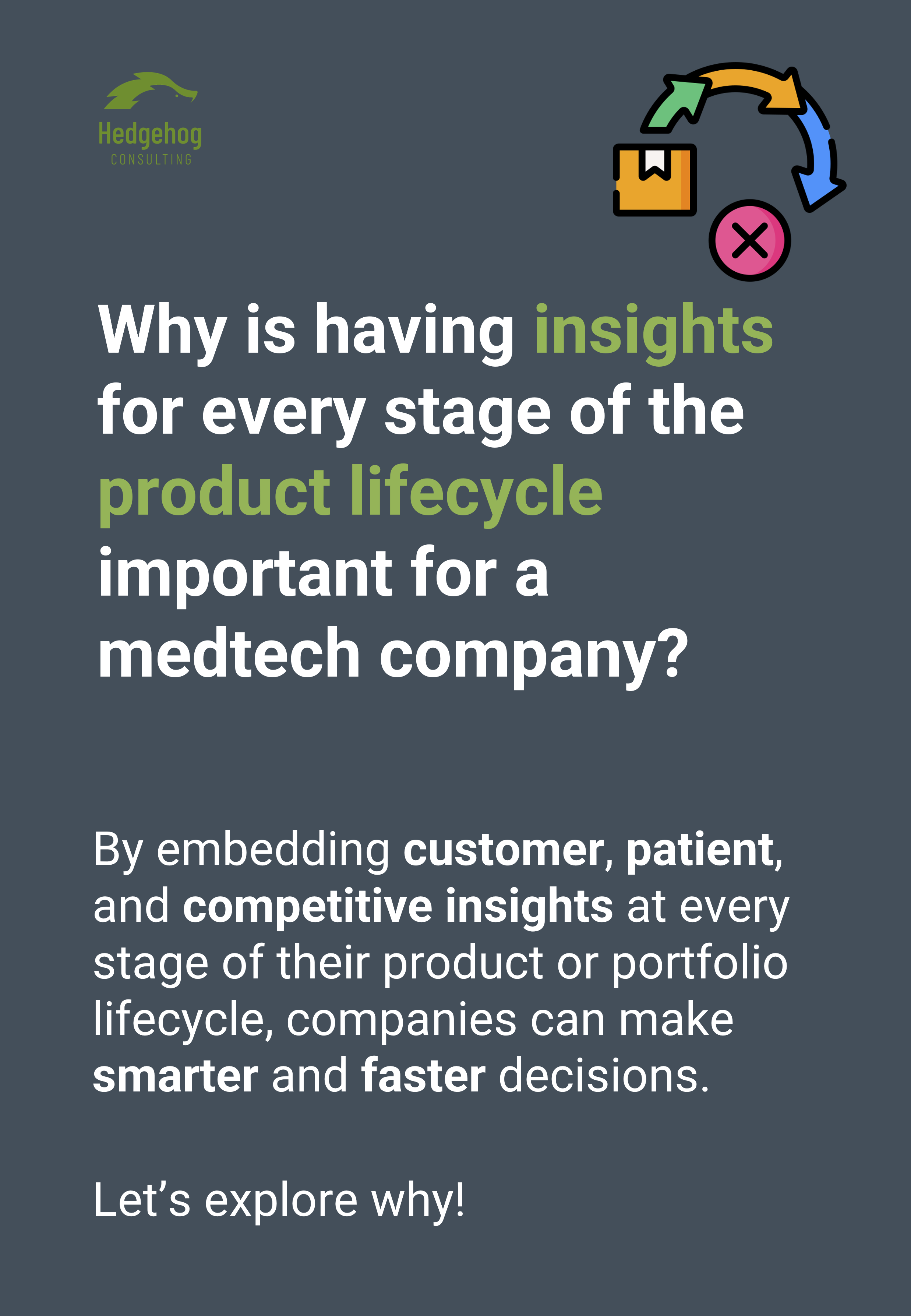
At Hedgehog Consulting, we believe the smartest medtech companies—whether large, established players or scrappy startups—use customer, patient, and competitive insights not just once, but continuously, from concept to market optimization. Here's why that matters, and how it plays out in practice.
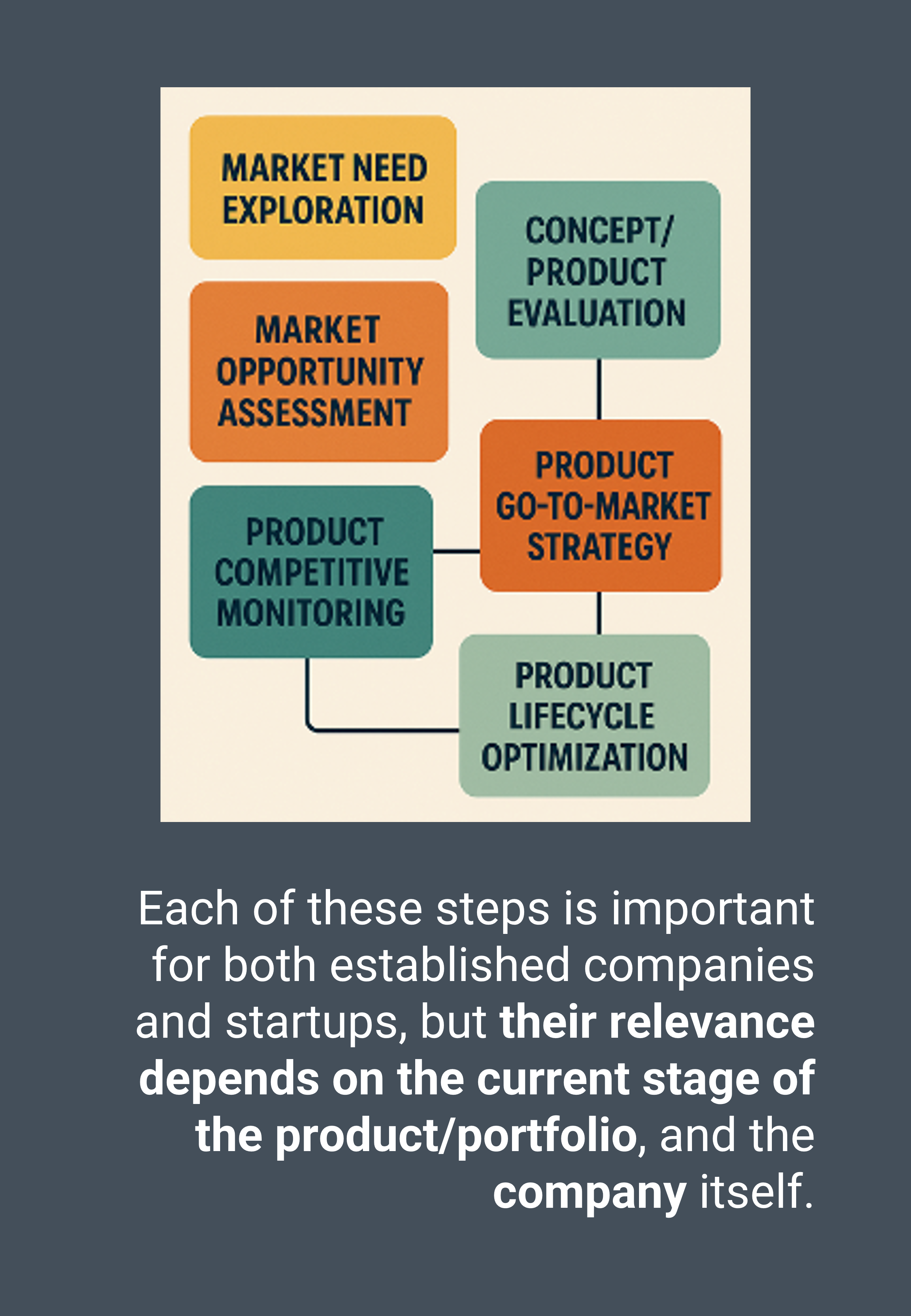
Each of these steps is important for both established companies and startups, but their relevance depends on the current stage of the product, portfolio, and the company itself.
1. Market Need Exploration
You can’t solve a problem if you don’t fully understand it.
- Established companies might use this phase to uncover adjacent markets or new product categories that fit their capabilities.
- Startups need to validate the problem they’re solving and make sure the demand is real before burning cash.
Too many companies rush through this step, but it’s the foundation for everything that follows.
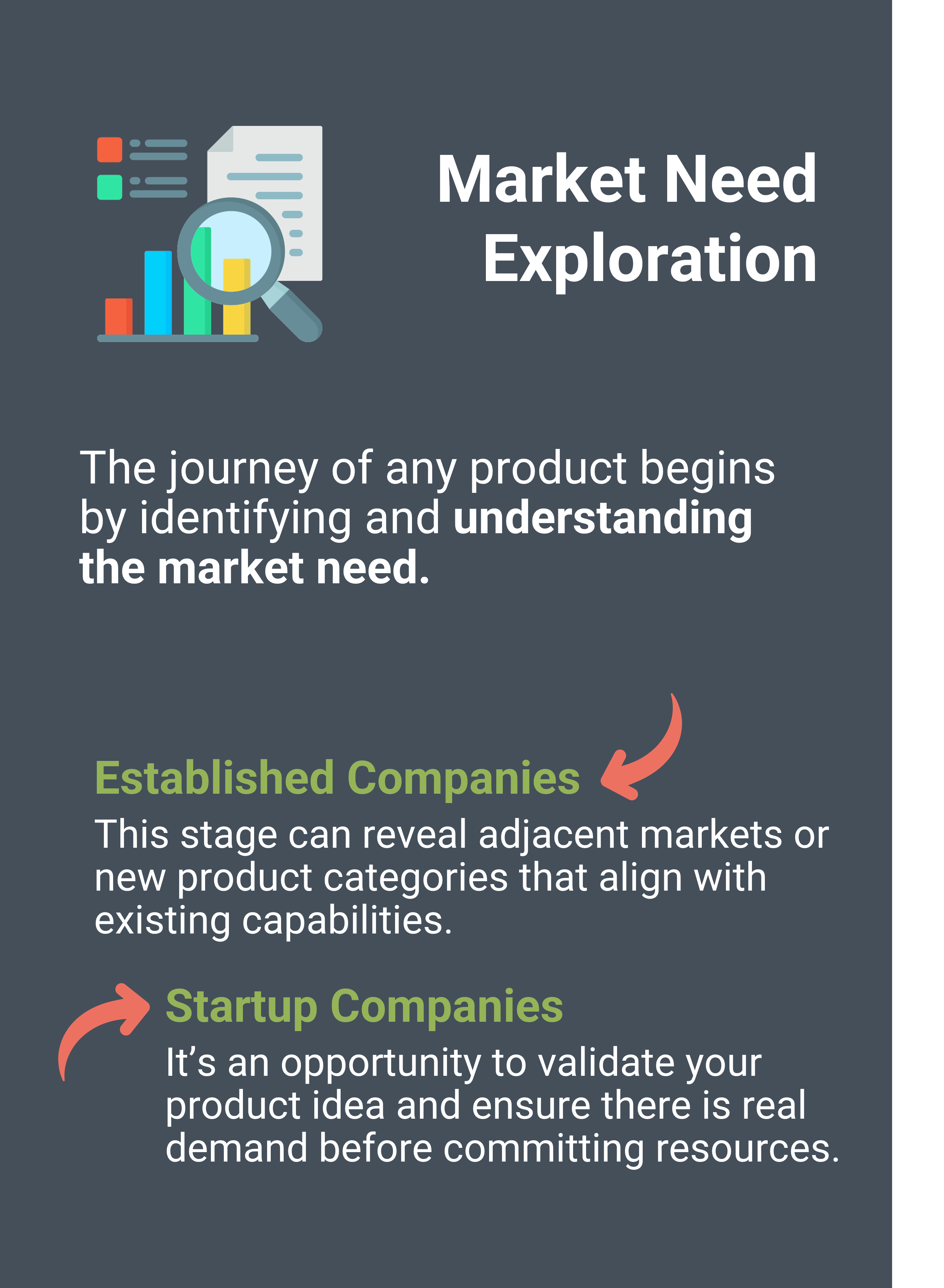
2. Market Opportunity Assessment
Once the need is clear, the next question is: Is this worth it?
- For established players, this is about prioritization—balancing risk, reward, and strategic fit.
- Startups, on the other hand, use this analysis to attract investment and build confidence with stakeholders.
It’s not just about having a good idea—it’s about proving it can thrive.
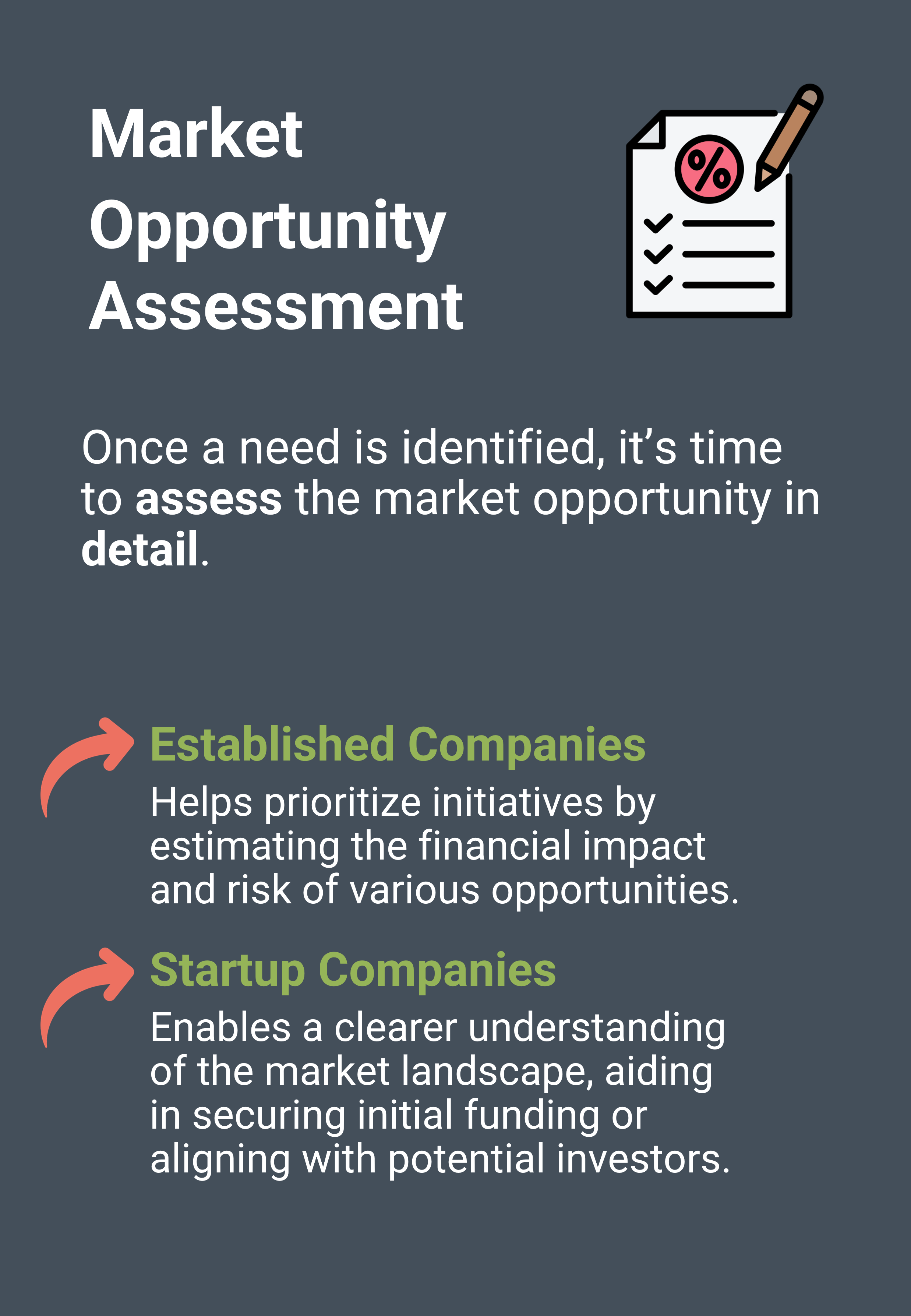
3. Concept and Product Evaluation
Early feedback saves time, money, and reputation.
- Corporates use this to avoid launching products that fall flat or fail to meet usability standards.
- Startups can refine their concept based on real-world reactions, before they scale too soon or too fast.
Early-stage testing is your safety net—and your innovation fuel.
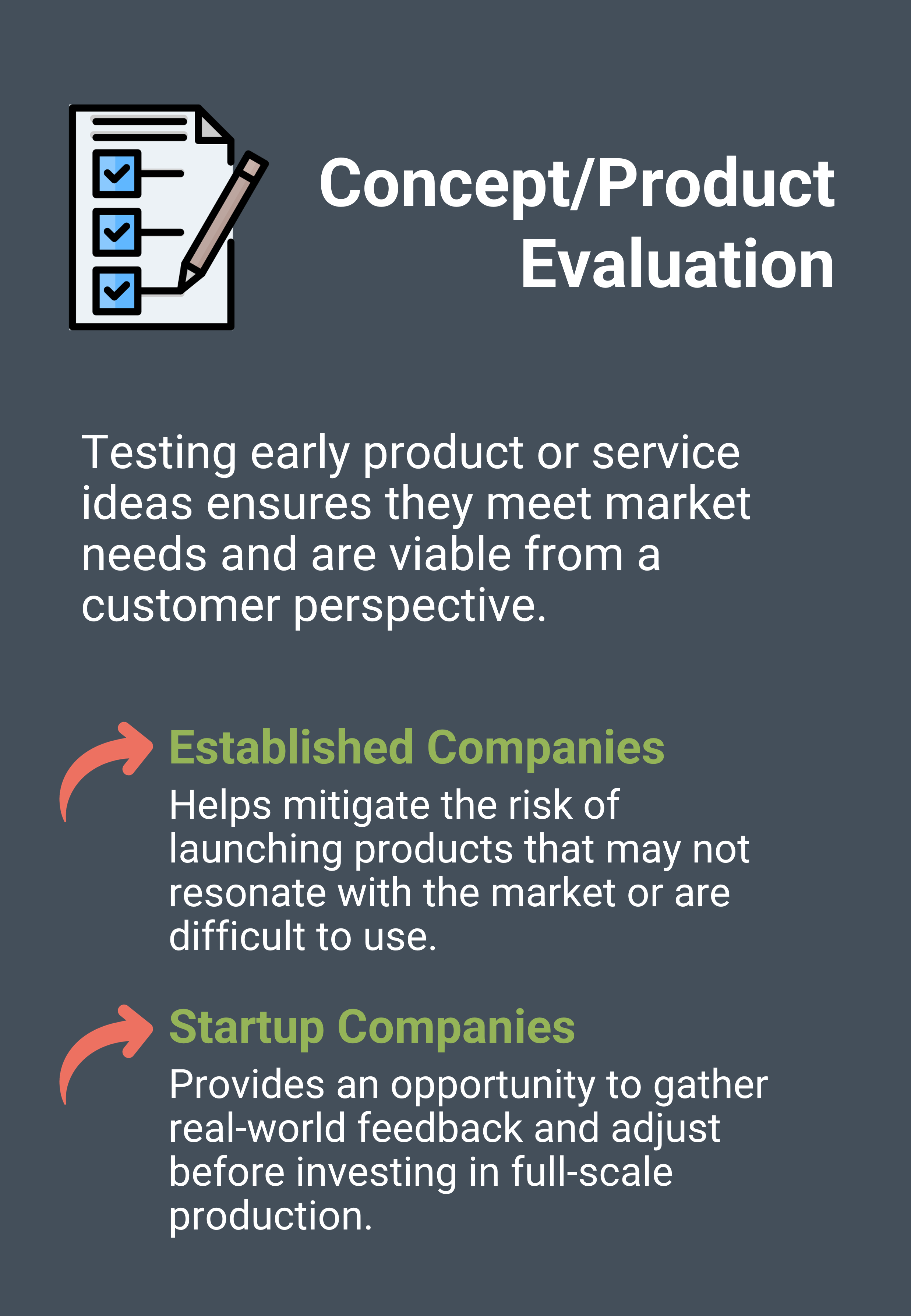
4. Go-To-Market Strategy
Even the best product fails if the launch strategy is weak.
- Established brands refine their positioning and messaging to align with existing trust and recognition.
- Startups build everything from scratch: value props, channels, validation points, and stakeholder buy-in.
This is where strategy meets story—and story meets sales.
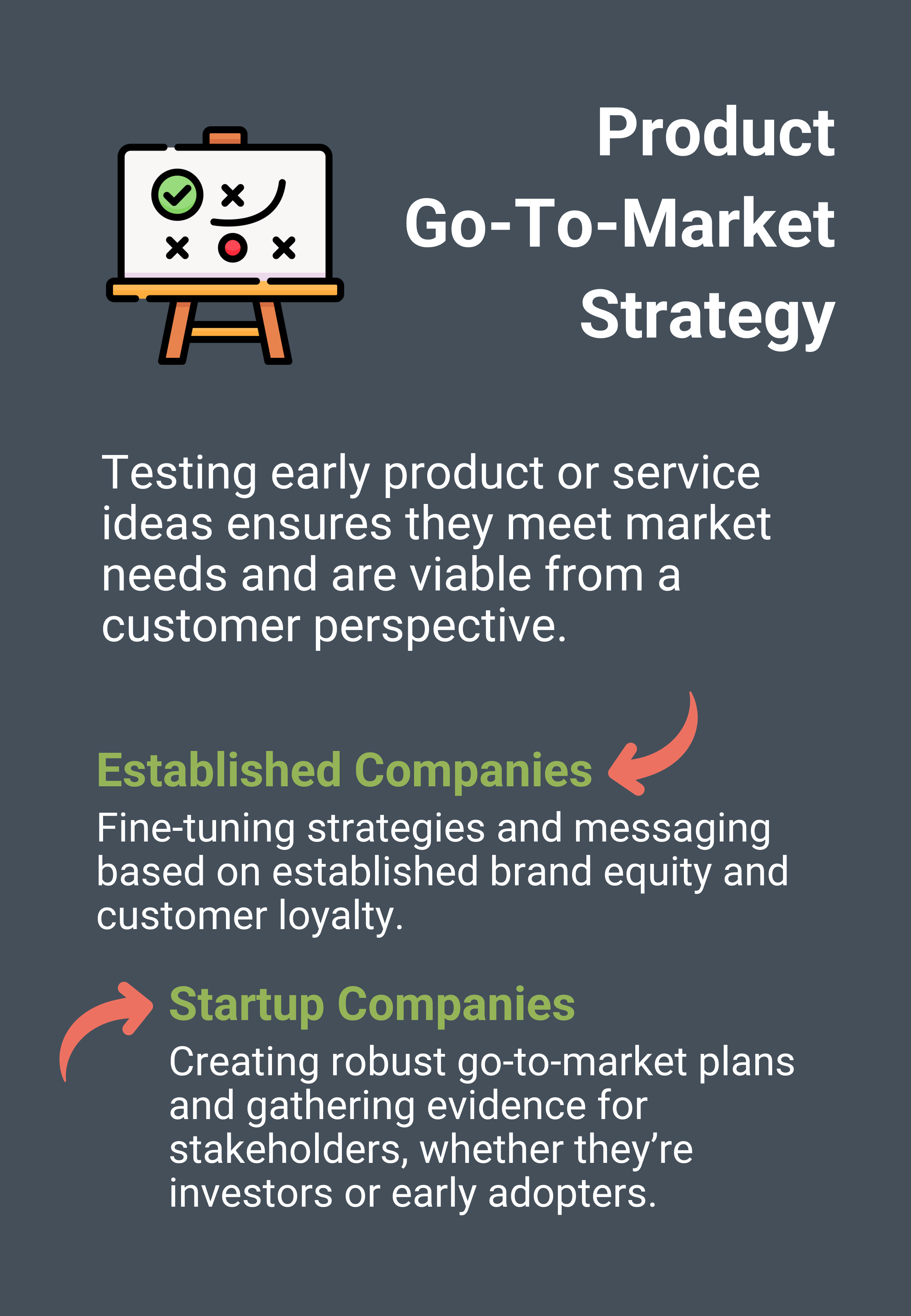
5. Competitive Monitoring
The only constant in medtech? Change.
- Legacy companies monitor competition to defend their lead and adapt quickly to threats.
- Startups track the field to differentiate and pivot when necessary.
Without regular benchmarking, you risk flying blind in a fast-moving landscape.
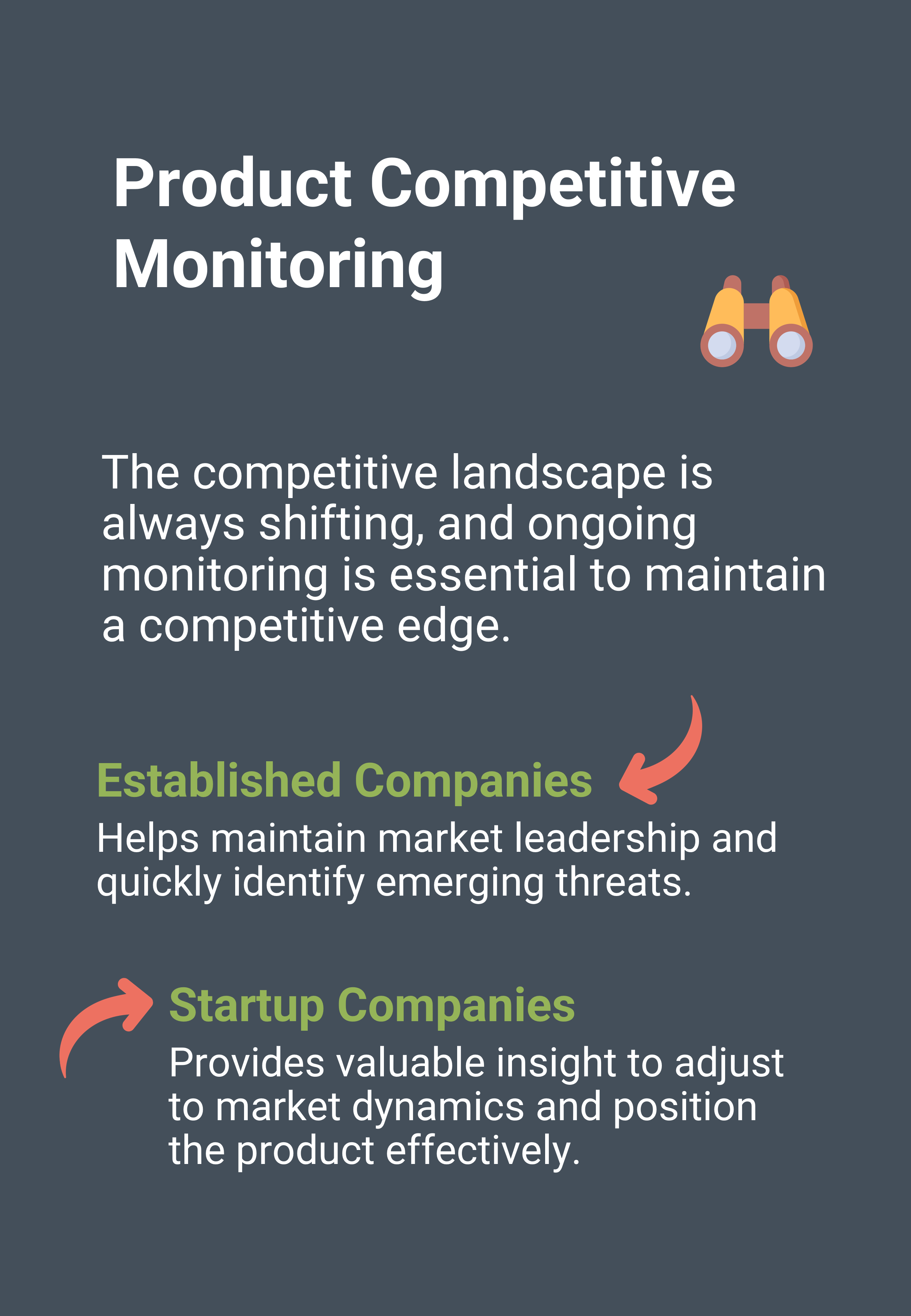
6. Lifecycle Optimization
Post-launch is not post-effort.
- Established medtech companies extend product life and maximize returns through repositioning and iterative improvements.
- Startups explore upgrades and adjacent opportunities to drive long-term growth.
Optimization isn’t a phase—it’s a mindset.
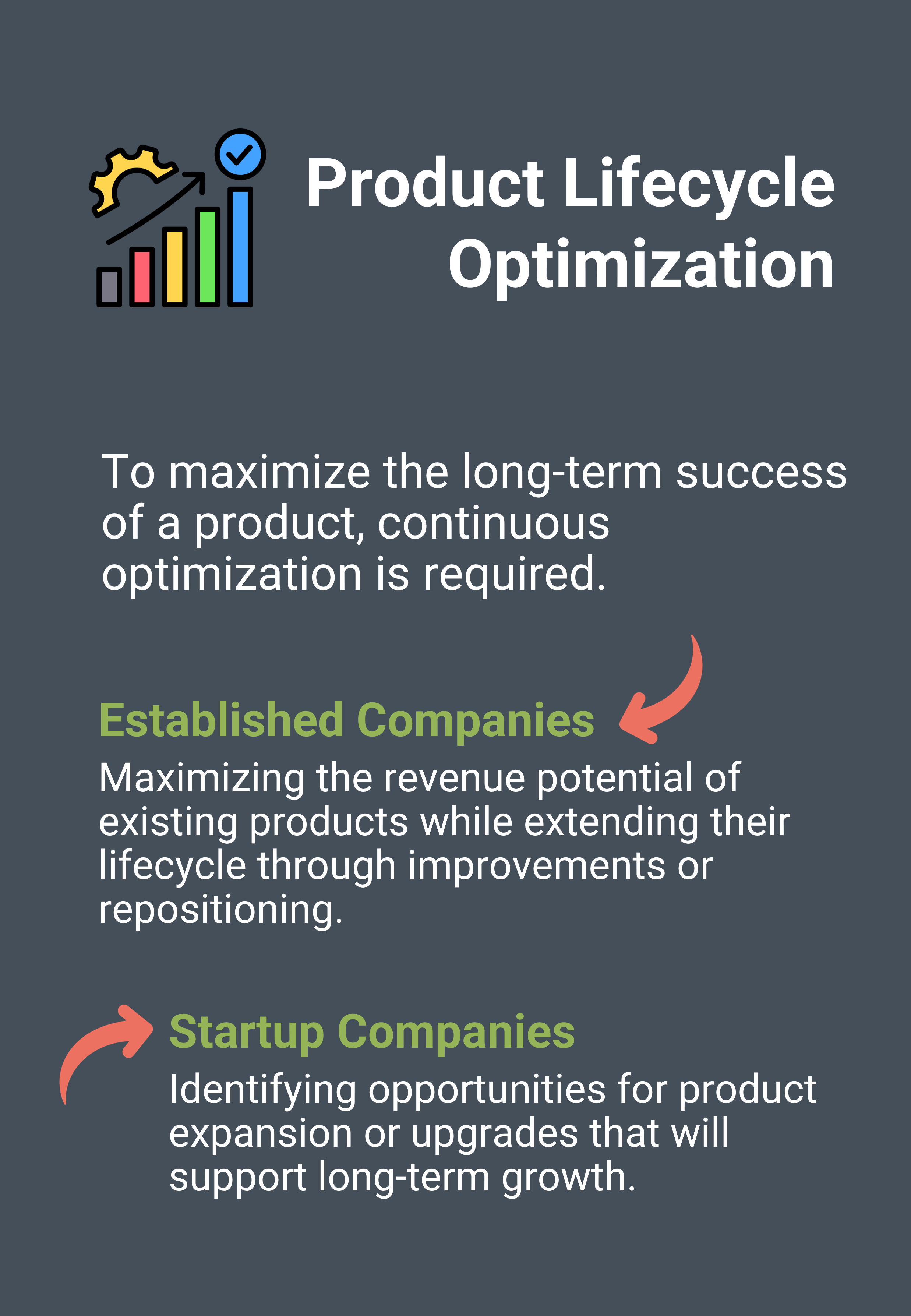
Final Thoughts
Medtech innovation is complex, regulated, and high-stakes. But at every stage, insight creates clarity—and clarity creates confidence.
At Hedgehog Consulting, we help companies embed actionable intelligence into each step of the product journey, ensuring their decisions are smarter, faster, and more effective.
Whether you’re entering a new market or defending your turf, insights aren’t optional. They’re your edge.
Get in Touch

